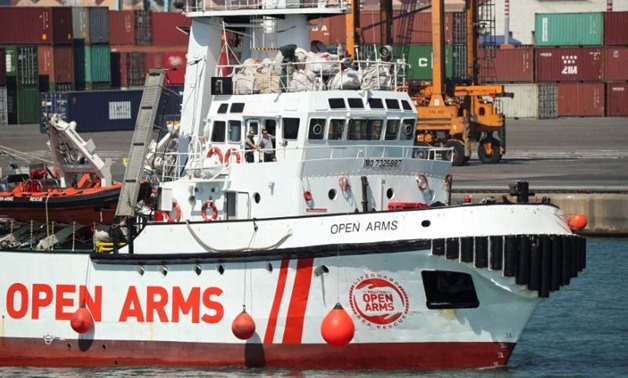
Migrant rescue boat arrives in Spain after rejection by Italy and Malta | Reuters
BARCELONA - 5 July 2018: A humanitarian rescue boat carrying 60 migrants rescued off Libya docked in Barcelona on Wednesday after being turned away by Malta and Italy, in the latest example of European divisions on immigration.
Spain's new Socialist prime minister, Pedro Sanchez, had offered for the second time in a month to take in migrants rejected by Italy and Malta, which where both closer.
Irregular immigration across the Mediterranean has fallen dramatically, with about 45,000 people making it to Europe across the sea this year compared to over a million in 2015, but politically it has become ever more divisive.
Last week, European Union states agreed to tighten their external borders and spend more in the Middle East and North Africa to bring down the number of migrants and to set up new centres to handle new arrivals.
In a video tweeted by a crew member, men, women and children sang and cheered as the rescue ship Open Arms, operated by the Spanish charity ProActiva Open Arms, arrived in Barcelona's busy port to dock alongside cruise and cargo ships.
ProActiva founder Oscar Camps said that while the Open Arms made the four day journey to Barcelona, hundreds more migrants had drowned in the Mediterranean Sea, where no humanitarian boats are currently patrolling.
"We have arrived (in Barcelona) with our cupboards bare but with 60 lives. We have to make do with that for the time being," he said at a news conference after the boat docked.
Last month, Spain accepted 629 migrants on another charity rescue boat, the Aquarius.
Barcelona mayor Ada Colau said Spain must continue to accept migrants and make permanent the reception infrastructure put in place for the arrival of the Open Arms boat.
"We proved we could do it with the Aquarius and again with Open Arms so it is the duty of all of us, but especially the institutions, to continue doing this in all cases," Colau said, speaking at a news conference alongside several European Members of Parliament.
"What we cannot allow is that this only happens for high-profile cases in the media. That would be an enormous hypocrisy and one for which we could never forgive ourselves," she added.
The migrants, including five women and four children, are of various nationalities, including Palestinians, Syrians and Guineans. Eleven people received medical attention for injuries, none of them serious.
Most Spaniards are in favour of welcoming and helping to integrate refugees, and feel that their previous, conservative government did not do enough, pollsters say.

Comments
Leave a Comment